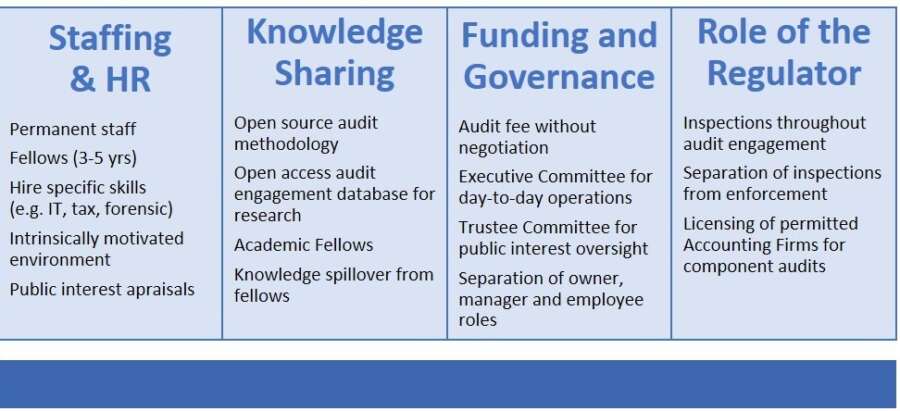
By Remko Renes Nyenrode, Assistant Professor of Corporate Governance Business University
As many of us are aware, accounting firms are under constant strain to serve two masters. They have to serve both their individual clients and the public interest while being organised in a for-profit firm.
However, with my co-authors Herman van Brenk (Nyenrode Business University) and Greg Trompeter (University of Central Florida), I wrote an academic essay – forthcoming in Critical Perspectives on Accounting – in which we propose an alternative model of auditing in the public interest in order to challenge the status quo.
The issue is, the current system of auditing creates tension between commercial and public interests. While clients have interest in (mandatory) Auditors’ Opinions, the dominant focus of regulators is on the difficult to observe concept of audit quality in order to serve the public interest. Despite all the efforts of accounting firms to improve audit quality in response to the audit inspection reports of regulators, reports from regulators all over the world demonstrate that audit quality must increase substantially.
Our critical thinking supported by literature review learns that ongoing and recurring observations and inspection reports of regulators around the world (e.g. IFIAR, 2018) demonstrate that there is a lack of consistency in the execution of high-quality audits and that from a public interest perspective continuous improvement is required of the mandatory audit of the financial statements. One major concern is that the for-profit accounting firms’ commercial interests may interfere with their obligation to act in the public interest.
We argue that there are a variety of reasons why auditors face challenges to act in the public interest. For example, they want to keep good client relations, they want to be as profitable as possible, or they might not have appropriate staff or a realistic budget.
In order to combat this, we have designed an ‘Audit Board.’ This Audit Board is conceived as a separate not-for-profit organization that would conduct financial statement audits for public interest entities. We envision an organization consisting of a core permanent staff of experienced audit experts that is complemented by Audit Board Fellows drawn from the existing accounting firms who take a job at the Board for a certain time period. Since the Audit Board focuses on statutory audits of Public Interest Entities (PIEs) this allows legal flexibility per country. The audit fee is objectively defined and based upon an Audit Schedule comprising risks, controls and financial indicators and involves Internal Audit in evaluation of this Audit Schedule. Finally, existing accounting firms remain involved in the audit of components and non-mandated audits.
The table below provides an overview of the key characteristics that would improve the current model of auditing.
Audit Board
• Separate quasi-governmental organisation
• Focus on statutory audits of Public Interest Entities (PIEs)
• Legal flexibility of PIE-scope by country
• Audit Schedule comprising risks, controls & financial indicators
• Internal Audit role in evaluation of Audit Schedule
• Existing Accounting Firms conduct component audit work and non-mandated audits

The ‘Audit Board’ reduces the problem of institutional commercial pressure. This proposal is based on our critical thinking and insights from 20 stakeholder dialogues with over 100 participants.
Our proposal helps regulators in their efforts to motivate auditors to act in the public interest. It would create an entity that is expert in auditing but avoids many of the independence problems faced by for-profit accounting firms. The introduction of an Audit Board can be an innovative alternative for politicians or regulators discussing this subject and can be used on a global scale due to the legal flexibility of the variation of PIE-scope by country.
We stress that our proposed Audit Board model keeps the strengths and benefits of the existing accounting firms, whilst also making sure auditing benefits the rest of society in a more sustainable way.
It could be argued that the auditing profession has been drifting away from stakeholders’ interests for decades, and focusing on its own. And while this proposal certainly deviates from the current model, we hope that it will contributes to an effective dialogue that may lead to an overhaul of the current model for the organisation of the auditing profession and change the status quo of auditing in the public interest.


